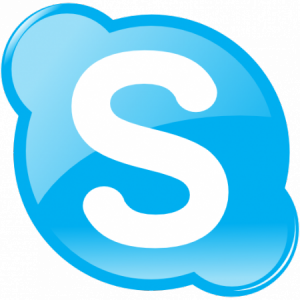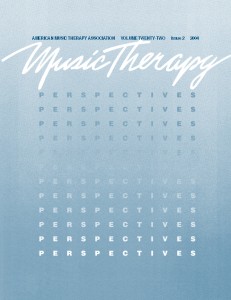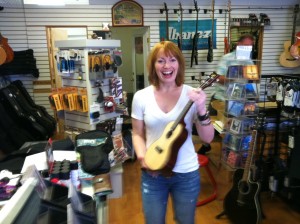 Tomorrow we’re having another monthly music therapist meeting. I am excited for this one; we’re including one of our friends who has moved to another state. I’ll be excited to see her (even though it’ll be on a screen).
Tomorrow we’re having another monthly music therapist meeting. I am excited for this one; we’re including one of our friends who has moved to another state. I’ll be excited to see her (even though it’ll be on a screen).

Sound Matters Music Therapy, LLC
Serving adults with developmental disability in Minneapolis, MN
I have never considered myself a songwriter. I have always considered myself a planner.
Recent realizations are such that I am a songwriter (almost on a daily basis), and my feelings toward planning are that they are hopeful and sometimes restricting.
I believe all of this relates.
I’ve been afraid of writing songs and music because I’ve felt that there are a certain set of rules a composer must follow in order for the song to be valid. I’ve also always held that a songwriter must be very versed in music theory. I loathe music theory. I know it’s useful and important, but I still loathe it.
 I’ve been set on rigid planning practices, in regard to music therapy and everything else there is to plan, but I have frequently been so pleasantly surprised by results of therapy sessions when I truly accommodate for the moment. This is not to say that goals and objectives are abandoned. This is to say that I am really good at improvising when I need to be. I am so happy with that.
I’ve been set on rigid planning practices, in regard to music therapy and everything else there is to plan, but I have frequently been so pleasantly surprised by results of therapy sessions when I truly accommodate for the moment. This is not to say that goals and objectives are abandoned. This is to say that I am really good at improvising when I need to be. I am so happy with that.
As far as songwriting and planning go, I’ve found that I can create a legitimate song in a session that is not only applicable to that particular client and his or her needs but teachable and adaptable.
I like these kinds of surprises.
One way in which I have been trying to branch out as a young professional is to develop my business skills. My fiancé offers endless assistance, for which I am grateful. I am also trying to seek out any resources I can utilize on my own.
Podcasts are huge for me right now. I am in the car a lot, driving from client to client to contra ct to client, etc. Perhaps it’s my Suzuki upbringing, but I absorb a lot from listening to interesting content; I love to read, of course, but I think I gain more from the act of listening.
ct to client, etc. Perhaps it’s my Suzuki upbringing, but I absorb a lot from listening to interesting content; I love to read, of course, but I think I gain more from the act of listening.
One podcast I’ve liked this week is Wall Street Journal on Small Business, which can be found here. The podcast is short and provides synopses of several pieces that are applicable to small business owners and entrepreneurs.
On Saturday, the Minneapolis Area Music Therapists will get together again for our monthly meeting. I’ve invited a couple of music therapists I know to attend via Skype, as they live in two other states. One of them had done her internship here in the cities before taking a full-time music therapy position in Indiana. I’m excited to see how we can connect on screen. 
We will be looking at another set of articles (I believe), and sharing songs we are using on a regular basis in our work. I plan to bring an original song that I “wrote” while in a session, and have been using more and more now.
Each Monday, I will be writing up a short, non-academic review of an article I’ve found interesting. These articles will be taken from music therapy peer-reviewed journals.
The article I’ll briefly review tonight is, “Use of Music to Improve Speech Production in Children with Autism Spectrum Disorders: Theoretical Orientation,” by Hayoung A. Lim. The article was published in Music Therapy Prespectives, (2009), Vol. 27.
I chose this article because I presented to a group of speech-language pathologists last week, and have since been more and more interested in the role of speech and language in music therapy. I have four clients who are not verbally communicative but are expressive in other ways.
This article is a literature review, and a somewhat lengthy one at that.
I’ll briefly describe three pieces of information regarding speech production I took from the piece:
Here are three points that implicate the use of music in speech production with children who have ASD:
There are so many more things I could and should say about the relationship between music and speech, but I will leave it for another post.
I began another contract today. This one will last for eight weeks. I work with groups of adults with developmental disabilities throughout the day, and end the day with a debriefing session that includes staff members. Today was the first time I’d met most of the clients and many of the staff members. I loved the experience and am fortunate to feel very comfortable with and welcomed by the staff.
One of my biggest challenges with this particular contract is that I am charged, if you will, with the task of designing music experiences that non-musicians can facilitate with the clients in my absence. The facility owns a collection of instruments that I used today and will be using in the future, but the facility’s biggest hope is that when I leave, the music won’t. The staff provides music sessions on a daily basis, and I understand my job to be to provide new resources for them and new techniques with which they feel comfortable. Apparently, some of the staff chose not to be a member of my particular project because music was too intimidating. Based on the responses I observed in the clients today, I definitely believe music is a powerful force at this facility (and most places). My big question is, How can I lead and teach in a way that is musically stimulating and pleasing, but not impossible for non-musicians to perform? 
I do love challenges.
I presented on music therapy to a group of speech-language pathologists and occupational therapists on Wednesday (was that really only yesterday?), and since then I’ve been thinking more and more of the importance of collaborating. Each therapist’s purpose when working with a client is to help him or her reach a goal, and what I have in common with other creative arts therapists and “traditional” therapists is that I want to help move a client in a positive direction. I know that knowing more about each modality would be tremendous for me as a clinician and for my clients as well.
Much of the current event information and inspiration I get regarding music therapy is from other music therapists’ blogs. So, today I subscribed to 20 speech-language pathologists’ blogs. 🙂 This isn’t to say that I will know exactly what they’re talking about, but I will hopefully have a better understanding of what they do, in some respect. I will also be looking into other avenues of education (presentations, podcasts, etc.).
Today I presented to speech-language pathologists and occupational therapists at Kid Talk in Victoria, Minnesota. Half of the group was familiar with music therapy, and all of them seemed very supportive and interested in it and its work toward speech goals for their clients. I shared some resources I have, and was happy to receive some new resources from them as well. Not surprisingly, many of the speech-language pathologists shared that they use music in their treatment.
A few days ago I posted here that I’d love to co-facilitate sessions with other therapists. This topic came up in my talk this afternoon. Perhaps I will have such an opportunity in the near future. 
Tomorrow I present to a group of speech-language pathologists and occupational therapists on the application of music therapy in a setting that serves children with developmental disabilities. I have not seen, in person, a music therapist co-facilitate a session with a therapist or specialist of another profession, but have had a chance to see video of co-facilitation with physical therapy. I don’t necessarily expect that I will be doing anything of the sort with the children at tomorrow’s site (should I even meet these children), though I think co-facilitating with another specialty would be fantastic. Not only would I hopefully see progress in a client, but I’d also have a better perspective of the processes of the other facilitator. 
I am back on the mainland! I spent the past several days on Maui, and returned yesterday afternoon. Needless to say, Hawaii is a wonderful place. Several times I saw people lounging on the beach with their guitar or ukelele.
The only souvenir of Hawaii I wanted to bring home with me was a ukelele. Now that I am working primarily with small, young children, the size of the ukelele and its portability makes the instrument very appealing. I shadowed one of my ukelele-playing music therapist friends working with children, and I decided then and there that the instrument was essential.
Knowing that I was about to depart to Hawaii, I decided I’d pick one up there.

While in Hawaii, I attended one group class designed for beginners. I didn’t get any new skills from this class, so I took a private lesson from someone at Lahaina Music, where I purchased my uke.
Aloha and mahalo!